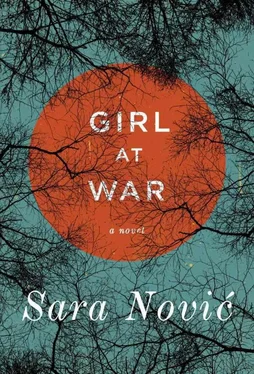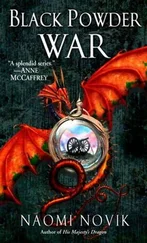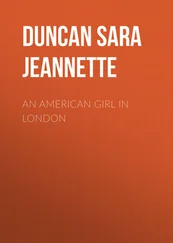Having downed the soup and eager to escape the television, the refugee followed us and sat on the far end of the couch. His face was coated in stubble and mud, dirt smeared across his shirt and lodged beneath his overgrown fingernails. He made me nervous, and I wished my parents would be more attentive to their guest, but they were busy trying to get Rahela to eat something — an effort that had essentially become force-feeding — and neither of them noticed.
“He took my wife,” the refugee said. “I heard her screaming through the wall.”
Luka and I just stared, afraid to move.
“He had a necklace strung with ears. Ears off people’s heads.” The man cupped his head in his hands, pressing his fingers to his ears as if to check whether they were still attached. I yearned to go to school. After what seemed like much too long, my father poked his head around the corner.
“You’ll be back straight after class is through?” He raised his eyebrows.
“Yes,” I said, unaccustomed to curfews but willing to compromise.
“Go on then.”
We sprang from the couch under cover of clattering pans and collapsing building footage, and my father winked at us as we slipped out the door.
—
When I got home from school the refugee was gone. My parents didn’t say anything about where he went, and I didn’t ask. At sunset my father and I walked to Zrinjevac to look at the weather column at the edge of the park. He was wearing his mechanic’s jacket and I’d donned a coat and scarf, but it was balmy for November and soon we unzipped. My father pointed to the thermometer, explained the barometer, and lifted me up so I could run my fingers on the glass case that housed statistics for seasonal temperature averages and wind measurements.
“Maybe you’ll grow up to be a weatherwoman,” my father said. “You’d have to study hard, though.”
“Yes, Tata ,” I said, but my mind was elsewhere. I climbed onto the rim of a nearby fountain, grabbing my father’s hand for balance as I strutted the perimeter of the now stagnant pool. “What’s going to happen to Rahela?”
“If she doesn’t get better she might have to see a doctor far away. But she’s going to be fine.”
“What’s going to happen for Christmas?” It was still more than a month away, but winter had always been my favorite season, the Trg ablaze with fairy lights and filled with vendors selling roasted chestnuts in paper cones, snow layering up on our balcony and in the streets below, the days off school. I was getting too old to believe in Sveti Nikola, but I still looked forward to leaving my boot on the windowsill and waking up to find presents stashed inside. This year, though, I wasn’t so sure; nothing seemed totally out of reach of the air raids and our dwindling food supply.
“What do you mean?”
“Are we still going to have it?”
“Full of worries tonight!” my father said. He grabbed the fringe of my scarf and brushed it against my face, tickling my cheek. “Have you got your scarf tied too tight? Of course we’re going to have it!”
There was something about talking with him that made me feel better, no matter the conversation. My mother used to say my father and I thought in the same circles. I never understood it until I watched us later, in memories — when we were gazing at the sky (and we often were) we could unconsciously turn in the same direction and extract the same face from the clouds. At the park, I laughed and my father lifted me up off the fountain rim and I was skinny from biking and rations and he carried me on his shoulders the whole way home.
—
The electricity faded in and out in fits that sometimes coincided with air raids but often seemed related to nothing at all, the whim of a damaged wire. When it happened during the day we didn’t notice at first. Then, when the shadows edged inward, one of us would reach for a lamp in the fading afternoon sun and be met with disappointment. Eventually we got used to its intermittent presence, and after a while didn’t even bother to light the candles we’d stockpiled, instead resigning ourselves to those activities to be carried out in darkness.
Then the water went. We’d had periods of outage before, but now it was gone often, and for longer stints. A twist of the faucet released a coppery sludge, then the angry hiss of air pressure. One morning before school, my mother woke me early and sent me to the courtyard with a pair of gas cans to bring back water from the pump for soup and bathing. City officials and other grown-ups called it the “municipal pump,” as if it had been designed for this purpose, but it was really a fire hydrant rigged with a wrench and some piping by one of the men in the building.
Down in the concrete clearing I swung the cans by their handles. The air was crisp, but in the sun it still wasn’t too cold. The landscape had transformed into something desolate: the cigarette and newspaper kiosks were all boarded up, the old man and his chocolates packed away, his folding table leaning against an alley wall, abandoned. The pump at least livened the place up again, if only for a few minutes at a time. When I came to the corner, I saw that most of the building’s residents were already outside clutching an odd collection of containers and broke into a run; the water often ran out and I’d been late the day before and only got half a canister. Two girls I knew from school were at the pump and they waved me to the front.
“Don’t cut the line, Jurić!” an old lady yelled at me, but I called back an excuse about Rahela being ill and went ahead to meet the girls. When I got there a stream of water hit me in the chest, the wetness spreading down my torso; Vjera — the perpetually pigtailed girl — had pressed her hand over the spigot, and the water shot out through her fingers like pent-up rays of sunlight.
“It’s cold !” I yelled, but already I was laughing. She aimed the water at my face now, and I caught it in my mouth, spraying it upward like the angel fountain in Zrinjevac. I grabbed at the pipe and twisted it in her direction, pegging her in the backs of the legs. We were hysterical now, laughing so hard it didn’t even make a sound. The old lady’s tolerance ran out and she came at us full-hobble, swinging her empty gas cans until one hit me upside the head.
“Get out of here before I call your mother,” the woman said. “All your mothers!” Ashamed, I quickly filled one of my canisters and darted home.
Inside my mother pressed a hand to her hip and pulled at the strands of wet hair plastered to my face.
“Ana, were you wasting the water?”
“It wasn’t my fault. Some girls from school sprayed me,” I said. Silence hung between us and I mumbled a sorry to break it.
“Let’s hope everybody has enough to drink now,” she said. Then after a while, she smiled a little and swiped again at my hair. “At least I don’t have to boil any for you. You’ve already had quite a shower.”
I smiled then, too, and watched as she heated the water on the stove and bathed with a washcloth in the middle of the kitchen. My mother’s hair was the color of burnt chestnuts, and when she moved, it shone.
—
That night I arrived home from school to find my mother and father standing face-to-face, staring hard at one another. Something was wrong. My father was home too early; his fists were clenched. When the door swung in and hit the wall, they jumped. My mother turned to wipe her eyes. My father began plunking dishes and spoons down on the table with too much force. My mother busied herself, too, was throwing tiny clothes that had once been mine and were now Rahela’s into a suitcase on the floor.
“Rahela,” I said. My parents seemed to slow slightly at the mention of her name. “Where is she?”
Читать дальше












